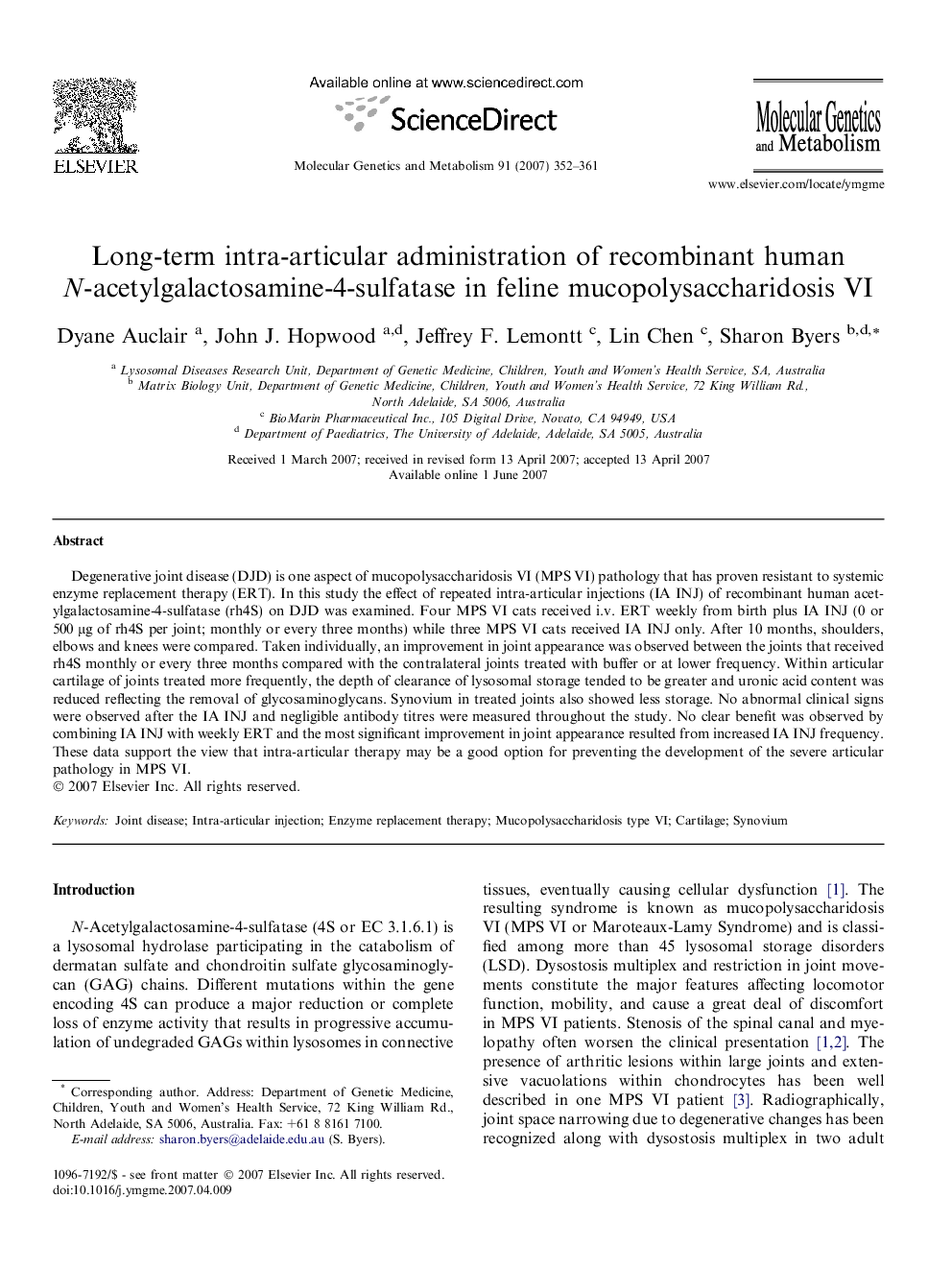| Article ID | Journal | Published Year | Pages | File Type |
|---|---|---|---|---|
| 10834649 | Molecular Genetics and Metabolism | 2007 | 10 Pages |
Abstract
Degenerative joint disease (DJD) is one aspect of mucopolysaccharidosis VI (MPS VI) pathology that has proven resistant to systemic enzyme replacement therapy (ERT). In this study the effect of repeated intra-articular injections (IA INJ) of recombinant human acetylgalactosamine-4-sulfatase (rh4S) on DJD was examined. Four MPS VI cats received i.v. ERT weekly from birth plus IA INJ (0 or 500 μg of rh4S per joint; monthly or every three months) while three MPS VI cats received IA INJ only. After 10 months, shoulders, elbows and knees were compared. Taken individually, an improvement in joint appearance was observed between the joints that received rh4S monthly or every three months compared with the contralateral joints treated with buffer or at lower frequency. Within articular cartilage of joints treated more frequently, the depth of clearance of lysosomal storage tended to be greater and uronic acid content was reduced reflecting the removal of glycosaminoglycans. Synovium in treated joints also showed less storage. No abnormal clinical signs were observed after the IA INJ and negligible antibody titres were measured throughout the study. No clear benefit was observed by combining IA INJ with weekly ERT and the most significant improvement in joint appearance resulted from increased IA INJ frequency. These data support the view that intra-articular therapy may be a good option for preventing the development of the severe articular pathology in MPS VI.
Keywords
Related Topics
Life Sciences
Biochemistry, Genetics and Molecular Biology
Biochemistry
Authors
Dyane Auclair, John J. Hopwood, Jeffrey F. Lemontt, Lin Chen, Sharon Byers,
